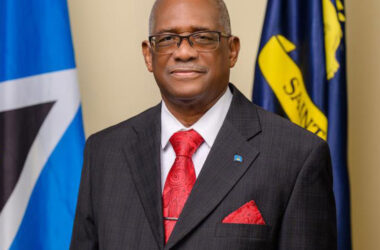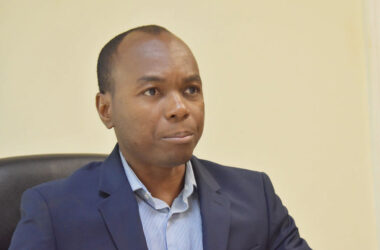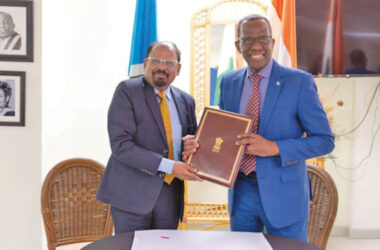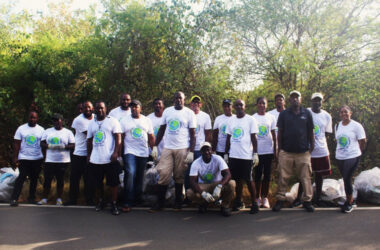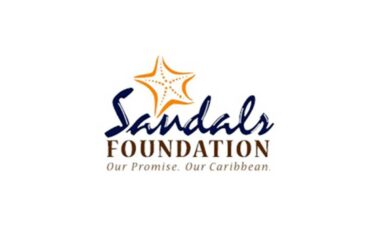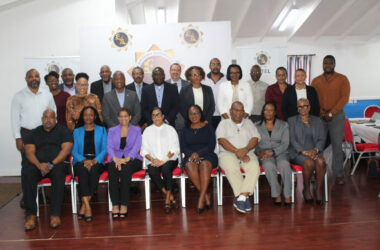St. Lucia Celebrates Its ‘Successes’
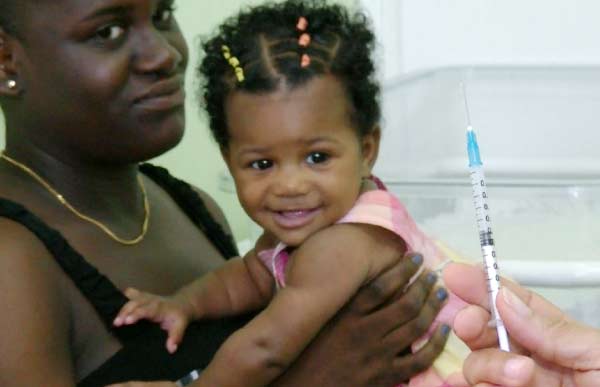
ST. LUCIA this week joined the rest of the world in celebrating Vaccination Week in the Americas under the theme “Go for the Gold! Get Vaccinated.”
The objectives of vaccination week are: to advance equity and improve access to vaccination for people of all ages; to improve vaccination coverage for all antigen; to increase awareness of how vaccination saves lives; to keep the topic on the political agenda and to promote the transition from childhood to family immunization.
The Ministry of Health planned several activities including a Polio Switch on Tuesday and the training and orientation of new nursing staff to the importance of vaccination.
Director of the Bureau of Health Education, Natasha Lloyd-Felix said: “The vaccination programme has been one of the success stories of public health in the region, St. Lucia in particular…We take this opportunity this year to celebrate our successes but also to reflect and see where opportunities exists to improve our delivery of vaccination services.”
Assistant Principal Nursing Officer, Juliet Joseph expressed the Ministry of Health’s intention to increase vaccination coverage on island through collaboration with the Ministry of Education via working sessions with teachers and heads of the Early Childhood Development Programme. The general public will also be sensitized on the importance of vaccination through public service announcements, handouts and posters.
“We really want this week to be an exciting week as we spread the good news about vaccination; how vaccination saves lives and to encourage parents to ensure that their children are covered.”
Vaccination is a process by which a person is made immune to a substance which is introduced into their system to reduce their chances of getting a disease. Dr. Sharon Belmar-George, Medical Officer of Health asserts that vaccination is a proven tool in many Caribbean countries and forms the cornerstone of the primary care service.
“There are many advantages of vaccination. One of them includes the elimination of certain infectious diseases and also in terms of the eradication in the case of the smallpox disease. In St. Lucia, as many of you are aware, it’s an important part of our primary health care system and we have seen quite a few of the benefits over the years. It has assisted us in terms of the morbidity and mortality especially in children and also the complications of allot of the vaccine preventable diseases.”
Dr. George indicated that from a personal standpoint, vaccines also reduce the chances of persons getting diseases and is also more cost effective on the family in terms of the medical care for the treatment of such diseases.
“It also reduces the severity of such diseases as we have seen and is also important in terms of the prevention of infection. It also reduces the chance of antibiotic resistance in cases where we can prevent a disease; it reduces the amount of antibiotics that we have to administer to the population and also it increases life expectancy.
Vaccines are currently available at all public health facilities free of charge to every child from every strata of society. Immunization Programme Manager, Nurse Julietta Cassius-Frederick highlighted certain changes to be made to the vaccination schedule where some vaccines will be administered much earlier than usual.
She said: “We are aware that we had a pertussis outbreak last year July to December and so we were giving the whooping cough vaccine at 3 months. Now many of the cases that we were getting were actually infants who were less than 3 months. So because of that the ministry has taken a policy decision to start giving our whooping cough vaccine much earlier at 2 months…The other change that we have made particularly to that whooping cough vaccine is that we have added a dose. We were giving four doses for whooping cough now we are going to be giving five doses of the whooping cough vaccine. “
Frederick pointed out that these changes puts St. Lucia on par with what’s happening around the region and the rest of the world as for as vaccination of children is concerned. “The other change that we have made is that we want to keep measles and rubella off our shores. We have eliminated measles and rubella however these two diseases are still of concern to some countries in the world and so we have changed our second dose of Measles, Mumps, Rubella (MMR) from 4-5 years to 18 months. “
Tuesday this week was dubbed National Polio Switch Day where the region was involved in a very important milestones to eradicate polio globally. Though St. Lucia has not seen a case of polio since the 1970’s, however tourism, St. Lucia is at high risk for the importation of cases of the polio virus type 2 which is still circulating in certain countries around the world.
Frederick noted that last year injectable polio was introduced at the start of the vaccine schedule as a first step. On National Polio Switch Day all current type 2 oral polio vaccines being uses will be withdrawn and replaced by a different type of polio vaccine.
“So this is an important milestone for St. Lucia and the rest of the region in eradicating polio in the next couple of years.” Frederick stated.
Health officials appeal to the public for their understanding and patients as the ministry implements these important changes to the vaccination schedule, while encouraging the public to visit the Wellness Centre to ensure that their children are fully vaccinated.





